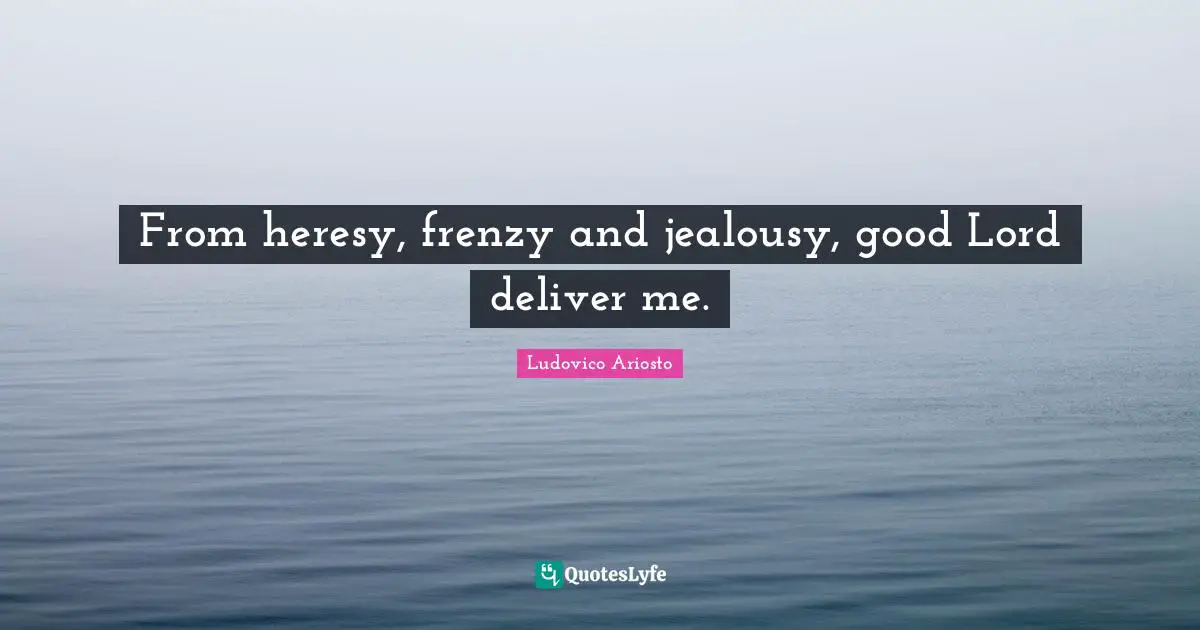![Ludovico Ariosto Quotes: For rarely man escapes his destiny. [It., Che l'uomo il suo destin fugge di raro.]](https://www.quoteslyfe.com/images/collection3/quotations831/For-rarely-man-escapes-his-destiny-It-831001.jpg)
For rarely man escapes his destiny. [It., Che l'uomo il suo destin fugge di raro.]
 Ludovico Ariosto
Ludovico Ariosto
Check all other quotes by Ludovico Ariosto
Want to display this quote image on your website or blog? Simply copy and paste the below code on your website/blog.
Embed:Format of this image is jpg. The width and height of image are 1200 and 630, repectively. This image is available for free to download.
Citation
Use the citation below to add this quote to your bibliography:
MLA Style Citation
"Ludovico Ariosto Quotes." Quoteslyfe.com, 2025. Mon. 03 Mar. 2025. <https://www.quoteslyfe.com/quote/For-rarely-man-escapes-his-destiny-It-831001>.
Check out
Other quotes of Ludovico Ariosto
Other quotes you may like

Every traveler should make their own observation.
Quote Description
This page presents the quote "For rarely man escapes his destiny. [It., Che l'uomo il suo destin fugge di raro.]". Author of this quote is Ludovico Ariosto. This quote is about men, destiny,.









![Such fire was not by water to be drown'd, Nor he his nature changed by changing ground. [Lat., Ne spegner puo per star nell'acqua il foco; Ne puo stato mutar per mutar loco.]](https://www.quoteslyfe.com/images/collection3/quotations831/Such-fire-was-not-by-water-to-831000.jpg)








